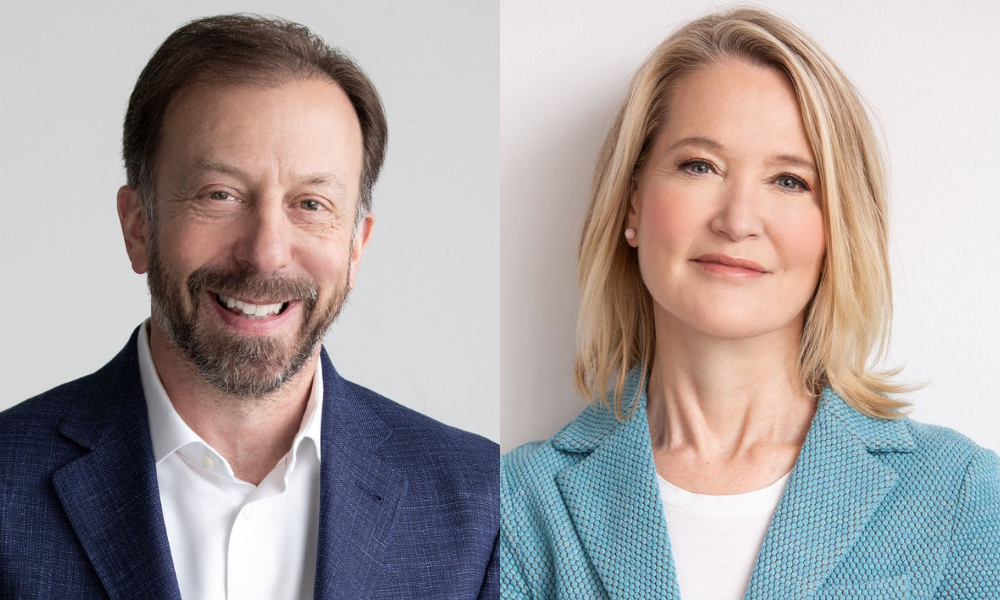With RIA-based business model and a focus on family dynamics, Canadian wealth industry veterans are challenging the status quo

As trends of holistic investment management and client-centric advice increasingly take hold across the Canadian wealth industry, a new discretionary investment counselling firm is opening its doors to serve high-net-worth and ultra-high-net-worth clients.
With an independent advisor-owned structure patterned after the US RIA model, the Delisle Advisory Group is challenging the traditional approach in Canada’s wealth market by focusing on clients’ best interests and family dynamics.
Missing pieces in high-net-worth planning
One of the firm’s co-founders, Andrew Auerbach, is a multi-decade veteran of the wealth industry. His resume includes a 21-year stint at BMO as well as experience running various full-service brokerage and investment counselling businesses in Canada and Asia.
“I've had a chance to really get to know the marketplace outside of Canada, in terms of how high-net-worth clients are being serviced outside of our country,” Auerbach (pictured above, left) says.
“When I retired, it was an opportunity for me to really stand back and assess the marketplace in Canada relative to other markets, particularly in the US,” he says. “I really saw an opportunity to bring an independent advisor-owned firm to Canada, very much focused on fiduciary standards where all the decisions revolve around what's in the best interests of clients.”
The firm’s other co-founder, Jean Blacklock, is a wealth planning executive and registered psychotherapist. The two first met at BMO, where Blacklock, an estate lawyer by background, was an executive responsible for the wealth services business nationally. After that, she started her own business, then went back to school and got formal education in psychotherapy.
“I realize now having worked with many, many clients, in both contexts as an estate lawyer and as a psychotherapist, that the two fields really have a lot to offer each other,” Blacklock (above, right) says. “When it comes to estate planning, I’ve found the missing piece has often been the inclusion of family members’ thoughts, feelings, emotions – all of the things that make us human beings as opposed to artificial intelligence.”
Armed with both field experience working with high-net-worth clients and her formal education on the human mind, Blacklock is looking forward to working with advisors, equipping them with conversational skills to help surface topics that clients might find difficult to bring into the room.
“We plan to approach planning from an altogether different perspective. Rather than looking at it as a document-based experience that results merely in signed documents, we want to look at it as a conversation – and likely more than one conversation – about what's really going on in the family,” Blacklock says.
‘People are people, and families are families’
“The landscape of wealth is changing profoundly in Canada, and client expectations have shifted,” Auerbach says. “I hear this continually from advisors, whether that's estate planning, tax planning, philanthropic plans or business succession planning – all these areas where the real value is demonstrated in the relationship.
“I think sometimes as an industry, we can be a little bit superficial that wealth equals happiness, or that, you know, we have idyllic posters of people on a boat or enjoying a beautiful outdoor cottage. These are wonderful things, but it doesn't really get to the fact that people are people and families are families. And there are dynamics that are important to explore.”
A case in point, Blacklock says, is the different types of relationships adult children can have with their parents. While some may have developed close attachments over their lifetime to the point where they check in on each other multiple times a day, other parent-child relationships are more boundaried.
“It's important to look at the type of relationship between those adult children and the parents because that really can drive matters of what is the legacy of the family, who takes on the business. It can also really affect estate planning, and maybe difficult decisions that the parents are making about, for example, treating one child differently than the other,” she says.
“My work will be about encouraging advisors to look at the relationships within the families in the here and now as part of the planning process, because there is no cookie-cutter family.”
According to Auerbach, an estimated 85% of financial assets in Canada are held in banks and bank-owned firms; in contrast, there are 17,000 RIA firms in the US with over 8 trillion dollars in assets, making it the fastest-growing arm of the country’s wealth landscape.
With 70% of advisors in Canada today over 50 years old, he senses a trend of aging in the advisory space that will set off a wave of transitions and succession in the coming years. That dynamic, he points out, was a major driver in the growth of the RIA model in the US, where many advisors saw breaking away as the best way to ensure their clients’ interests were well-served through the transition and for generations to come.
“The high-net-worth and ultra-high-net worth markets are very specialized, they're unique. And having firms that are singularly focused on looking after the needs of these families, I believe strongly, will be very compelling for Canadian families in the coming years,” he says.
“For advisors, having a seat at the table as an owner is obviously attractive. But beyond having a seat at the table, [you’re] eliminating the conflicts that can exist when you have competing priorities across different businesses, and have to decide where to allocate capital or look after shareholders,” Auerbach says. “You get a full alignment: you have owners as advisors who want to see the firm grow, who are aligned and have a vested interest in seeing the firm grow, but also who get to set the priorities as to where to make investments for the firm.”



